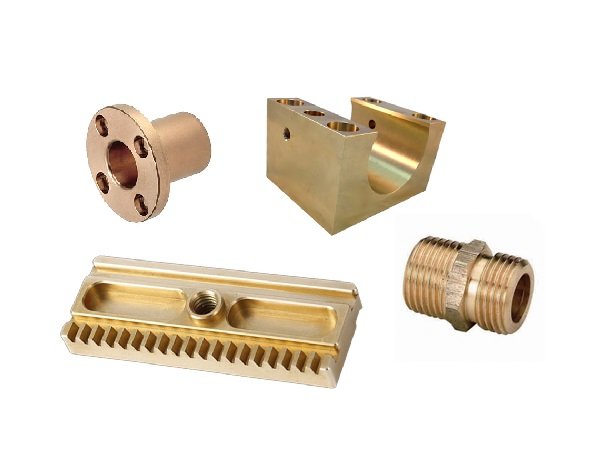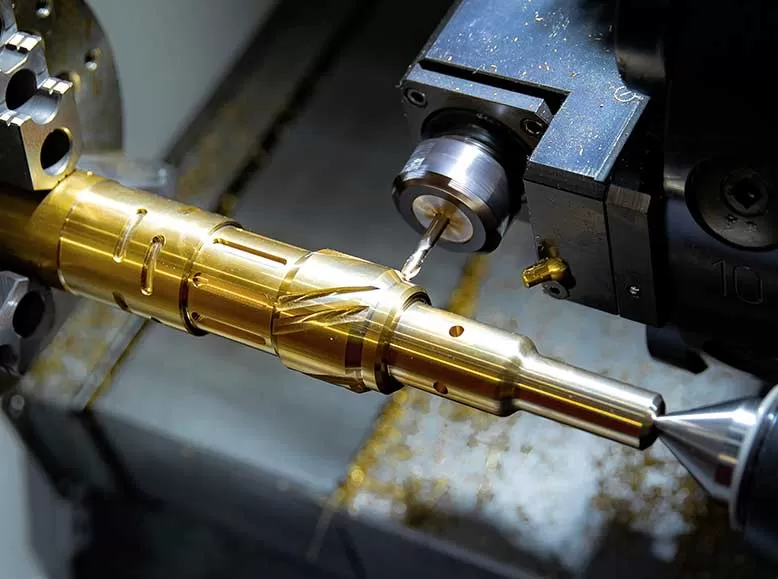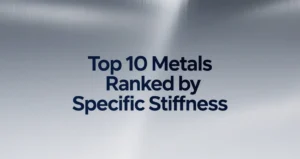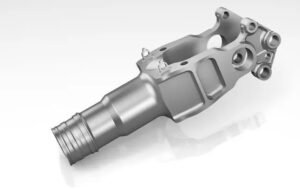Bronze CNC Machining Service
High-quality bronze CNC machined parts with excellent corrosion resistance, low friction, and precision. Perfect for aerospace, marine, automotive, and industrial machinery.

Bronze CNC Machining Services
Bronze is a copper-based alloy that typically contains copper, tin, and a certain percentage of lead. The inclusion of lead, a softer metal, greatly improves machinability by enabling smooth cutting, tight tolerances, and fine surface finishes. With a machinability rating of 100%, bronze is considered one of the easiest copper alloys to machine.
In addition to its cutting efficiency, bronze offers low friction properties, excellent thermal conductivity, and strong resistance to seawater corrosion. These characteristics make it especially suitable for components that operate under continuous frictional contact or in harsh marine environments.
Bronze CNC machining is widely used to produce reliable and precise parts across multiple industries, including marine engineering, aerospace, automotive, power generation, and heavy equipment manufacturing. While not as strong as some other metals, bronze is ideal for low- to medium-stress components such as bearings, bushings, pump fittings, and electrical connectors.

Applications of CNC Machined Bronze Parts
Bronze combines durability, corrosion resistance, and low friction, making it ideal for CNC machining. Typical applications include:
Bearings & Bushings: Self-lubricating and wear-resistant for moving machinery.
Valves & Fittings: Corrosion-resistant for plumbing, pumps, and fluid control.
Gears: Strong and durable for heavy equipment and precision instruments.
Aerospace & Marine: Bushings, landing gear, propellers, and underwater fittings.
Electrical Contacts: Excellent conductivity for connectors and switches.
Art & Architecture: Weather-resistant and visually appealing for sculptures and decorative pieces.
Material Properties for Machined Bronze
Material
Tensile Strength, Yield (MPa)
Yield Strength (MPa)
Fatigue Strength (MPa)
Elongation at Break (%)
Hardness (Brinell)
Density (g/cm^3)
Aluminum Bronze (C95400, C95500, C95900)
655 - 780
310 - 380
170 – 275
10% - 12%
170 - 210
7.45 – 8.2
Phosphor Bronze (C51000, C54400)
320 - 740
131 - 550
180
10% - 15%
80 - 225
8.9
Nickel Aluminum Bronze (C63000, C63200)
505 - 655
234 - 290
278 - 293
10% - 18%
140
7.7
Leaded Bronze (C93200, C93600)
255 - 414
83 - 379
70 - 100
8% - 20%
60 - 77
8.7 - 8.86
Tin Bronze (C90500, C90700)
252 - 303
138 - 152
100 - 150
8% - 18%
60 - 77
8.78 - 8.80
Silicon Bronze (C65500, C65100)
490 - 750
105 - 415
170
12% - 18%
90 - 150
8.3 - 8.9
Manganese Bronze (C86300)
448 - 724
172 - 365
137
18% - 20%
90 - 225
7.83 - 8.33
Bismuth Bronze
193 - 207
90 - 97
80 - 120
5% - 6%
55 - 65
8.58 - 8.78
Copper-Nickel Bronze (C70600, C71500)
300 - 500
150 - 300
80 - 120
10% - 25%
80 - 130
7.53 - 8.94
CNC Machining Resources

Top 10 Metals Ranked by Specific Stiffness
Top 10 metals with the highest specific stiffness (modulus-to-density ratio). Ideal for aerospace, automotive, and lightweight structural applications. Learn which

Which Metal Resists Corrosion Best? Stainless Steel, Titanium, and Aluminum…
Which metal resists corrosion best in different environments? This guide compares stainless steel, titanium, and aluminum in terms of durability,

How to Tackle Titanium Machining Difficulties
Titanium machining is tough due to heat and wear issues. Find out how to tackle these problems with the right

